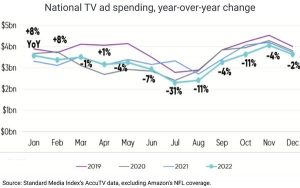 There is a war going on in the advertising world. It’s a war between publishers and advertisers against those who make ad blocker software. Companies in every industry are being affected negatively by the ever-growing usage of ad blocking software. Declining ad revenue is leading companies that are founded on advertising to pursue a variety of legal and technical tactics to keep showing their users’ advertisements.
There is a war going on in the advertising world. It’s a war between publishers and advertisers against those who make ad blocker software. Companies in every industry are being affected negatively by the ever-growing usage of ad blocking software. Declining ad revenue is leading companies that are founded on advertising to pursue a variety of legal and technical tactics to keep showing their users’ advertisements.
The ad blocker war is possibly the biggest thing happening in the Internet marketing world right now. Most forms of Internet marketing rely on advertisements to power them, making ad blocker software a massive hindrance to marketers and publishers.
While this war is being waged by companies such as The Economist and The Washington Post against a slew of ad block developers, what can the average business do? Stay completely out of it and use different marketing techniques!
How Big Companies Are Waging War on Ad Blockers
Publishers and advertisers are experimenting with different ways to get around ad blocking software and end its development and availability. Some approaches are based on technology; others are based on the law.
The Washington Post has been testing technology that completely prevents people using ad blockers from viewing certain content. Other businesses have followed suit, even restricting access to their entire site if ad blockers are in use. Some businesses believe this is worth it, but in almost every situation, it simply frustrates readers and drives them away.
The Chicago Sun-Times and Hulu have both included in their terms of service that users are not allowed to block or hide advertisements. The hope is that this will provide a legal recourse against users and ad block developers, but it remains to be seen if that’s even a viable option. However, Amazon and Facebook have set a clear precedent for taking users to court over terms of service violations, although those instances were unrelated to ad blockers.
Who ends up paying the price for all these battle tactics? End users. Even maneuvers against ad blocker developers ultimately aim to take away a tool that Internet users have overwhelmingly showed support for.
In some instances, these efforts even harm users directly. The Economist, one of the largest publications in the business world, used a tool known as Pagefair. This tool was developed for publishers specifically to circumvent ad blockers. However, Pagefair was recently hacked and altered to deliver malware to Economist readers making use of ad blocking software. Since the software was designed to override users’ security settings, it allowed hackers to directly serve malware to users’ PCs.
Why You Should Stay Out of It Entirely
The ad blocker war is heating up, both in the legal and technical worlds. You, as a business owner looking to grow your business, should stay out of it entirely.
Small to medium size businesses don’t have the budget for lawyers to sue ad blocker developers, nor do they have the technical team in place to try to get around the software. To make the matter more complex, most businesses have limited marketing budgets, and they need to make the most of every penny.
Making the most of their marketing budget is why savvy business owners are scaling back on Internet marketing techniques and re-discovering traditional methods of reaching people: radio spots, television ads, and billboards. In fact, each of these techniques is still considered by consumers as effective ways of earning their business.
- Radio spots. While it’s true that many consumers use their smartphones to play music during their drive, the radio is far from abandoned. Drivers are regularly turning in to talk shows for their commutes and top 40 stations to add some music to their drives. The radio is a completely free way to enjoy music, instead of burning through mobile data.Yet, many businesses have diverted their marketing budget to Internet-based methods, meaning radio ads have become more affordable. Small businesses can leverage this trend by investing in radio spots that their target market enjoys.
- Television ads. Time Warner recently made a splash by announcing it will experiment with decreasing the amount of advertisements on certain networks. This move is largely in response to the obvious frustration consumers have with advertisements. It also illustrates that traditional mediums are far from dead. If Time Warner has positive results by decreasing ads, you can expect fewer ads on TV to make viewers happy.This means that TV viewers may become more receptive to advertisements, something you will benefit from directly. Invest in writing and producing an effective TV ad, and it may help your business more than you might expect.
- Billboards. Why are there so many “this space available” billboards these days? Businesses have forgotten about how effective they truly are. The right billboard can expose your brand to thousands of people per day. If it’s well designed and contains a compelling call to action, such as calling your business or visiting your website, you’ll certainly see a boost after putting up a billboard.
Time to Revisit Traditional Advertising
It’s a turbulent time in the Internet marketing world. It’s a time where many forms of marketing are being shaken up by ad blockers, making the return on investment for these techniques entirely too unpredictable. Too many business owners are still running the same campaigns, yet seeing less than ideal results from them.
It’s time for the return of traditional advertising. Forbes declares that traditional marketing is still an effective route to explore as long as you know your customers and convey what’s unique about your business.
One of the best ways to use traditional advertising techniques is to use a vanity 800 phone number that will be memorable and remain in your customers’ minds long after the advertisement is over. Using different toll-free 800 numbers can even help measure the effectiveness of each ad campaign. Include these numbers on your billboards, radio spots, and TV advertisements to see exactly why traditional marketing is alive and well.
Read more about digital ad blockers and how using traditional forms of advertising will benefit your business.
Digital & Social Articles on Business 2 Community(92)
Report Post






